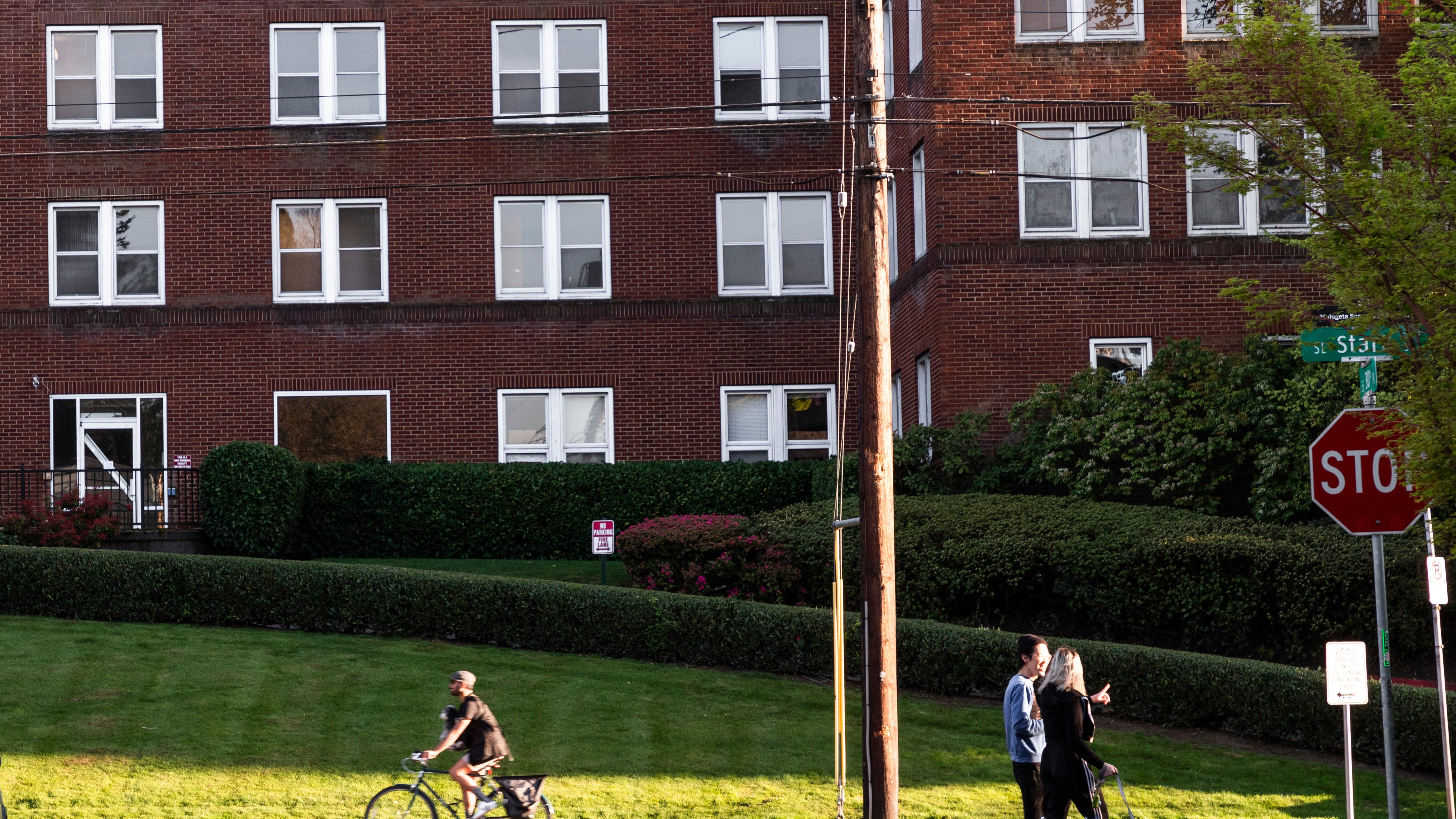The Oregon Veterans' Home in Lebanon was an early site of Oregon's COVID-19 outbreak, with 36 cases and six deaths reported as of April 19.
The response to the outbreak there may also provide a model of how to counteract the risk the pandemic poses to nursing homes and other long-term care facilities, which account for more than half of the state's deaths from COVID-19.
Every staff member and resident of the veterans' home was offered a test for the virus in early March. And last week, the Linn County Commission voted to fund testing for everyone in nursing homes and other group facilities, including county jails. (The veterans' home is located in Linn County.)
That's an approach to nursing homes that Multnomah County Commissioner Sharon Meieran, an emergency room doctor, now calls for adopting statewide.
"We need to test everyone. That's the most bare-bones response," says Meieran. "Every single nursing home should be testing everyone. There is no excuse. These are the most vulnerable and at-risk people."
Nursing home industry group the Oregon Health Care Association also says it supports widespread testing. Specifically, it's asking the Oregon Legislature's Emergency Board to approve $3 million for testing of long-term care workers whose tests might not be covered by health insurance if they are asymptomatic.
"We believe there must be widespread testing of health care workers, both to protect them and those they're caring for," says Jim Carlson, president and CEO of the association. He attributes the current outbreaks at facilities mostly to asymptomatic workers and newly admitted residents or guests.
The calls from nursing homes and Meieran are part of increasing questions whether the state's response to deaths in nursing homes is adequate.
As of last week, roughly 20 percent of Oregon's cases and more than half the state's deaths were in nursing homes and other long-term care facilities, including adult foster homes. Forty-three out of the state's 74 deaths were in nursing homes, adult foster homes or other facilities as of April 19. As of April 20, more than two-thirds of COVID-19 deaths in Multnomah County occurred in nursing homes or similar facilities.
It's not yet clear whether Multnomah County or the Oregon Health Authority will conduct testing of all nursing home workers and residents.
Gov. Kate Brown remains noncommittal. "Increasing testing capacity and ensuring the safety of long-term care facility residents are key components of the governor's plan to reopen Oregon," says Brown spokeswoman Liz Merah. "Our office is working to determine our next steps in those regards."
County public health officials say a lack of quick test results makes testing workers less useful. "If rapid testing were available, we could recommend facilities test their staff frequently," says county spokeswoman Kate Willson.
In group homes where an outbreak has been identified, county public health officials already recommend testing anyone who has been in contact with a sick person or who's been in the same area of a facility as sick people.
The health authority doesn't go that far. "Once an outbreak has been established, OHA does not generally recommend testing everyone, as the results would not usually change infection control efforts," says agency spokesman Philip Schmidt. "In situations where additional testing could help with infection control decisions, OHA does recommend additional testing."
That's the lesson OHA took from the veterans' home—that infection control rather than testing should be the focus. But OHA also changed its testing criteria April 20 to allow residents and staff without symptoms to be tested at such facilities when testing capacity is available.
The state has been slow to release crucial data around COVID-19 and nursing homes. OHA and the Department of Human Services only last week shared full data on how many deaths and cases were known to have occurred in the state's nursing homes and similar facilities. The disclosure came more than a month after Oregon's first death from COVID-19.
The influence of the nursing home industry on Oregon politics is also receiving new scrutiny. Last week, a political action committee controlled by Gov. Brown reported accepting a $20,000 contribution from a nursing home company owned by prominent donor Rick Miller. WW first reported that donation. Miller and Brown's campaign say the contribution was unrelated to the pandemic, having been promised last year, long before COVID-19 arrived.
It remains unclear what influence the nursing home industry has levied on state regulation. Carlson says he's asked the governor only for more equipment and testing.
On April 20, Brown announced the Oregon National Guard had provided more masks, gowns and other personal protective equipment to nursing homes and other facilities.
More PPE may, in turn, provide an opening for more testing. At an April 16 press briefing, Steve Allen, behavioral health director at OHA, noted that testing requires a "tremendous amount of personal protective equipment" to ensure the safety of the medical professionals administering the test.
"The test strategy…is emerging," he said. "A decision with scarce personal protective equipment and scarce testing needs to be made with professional guidance."
